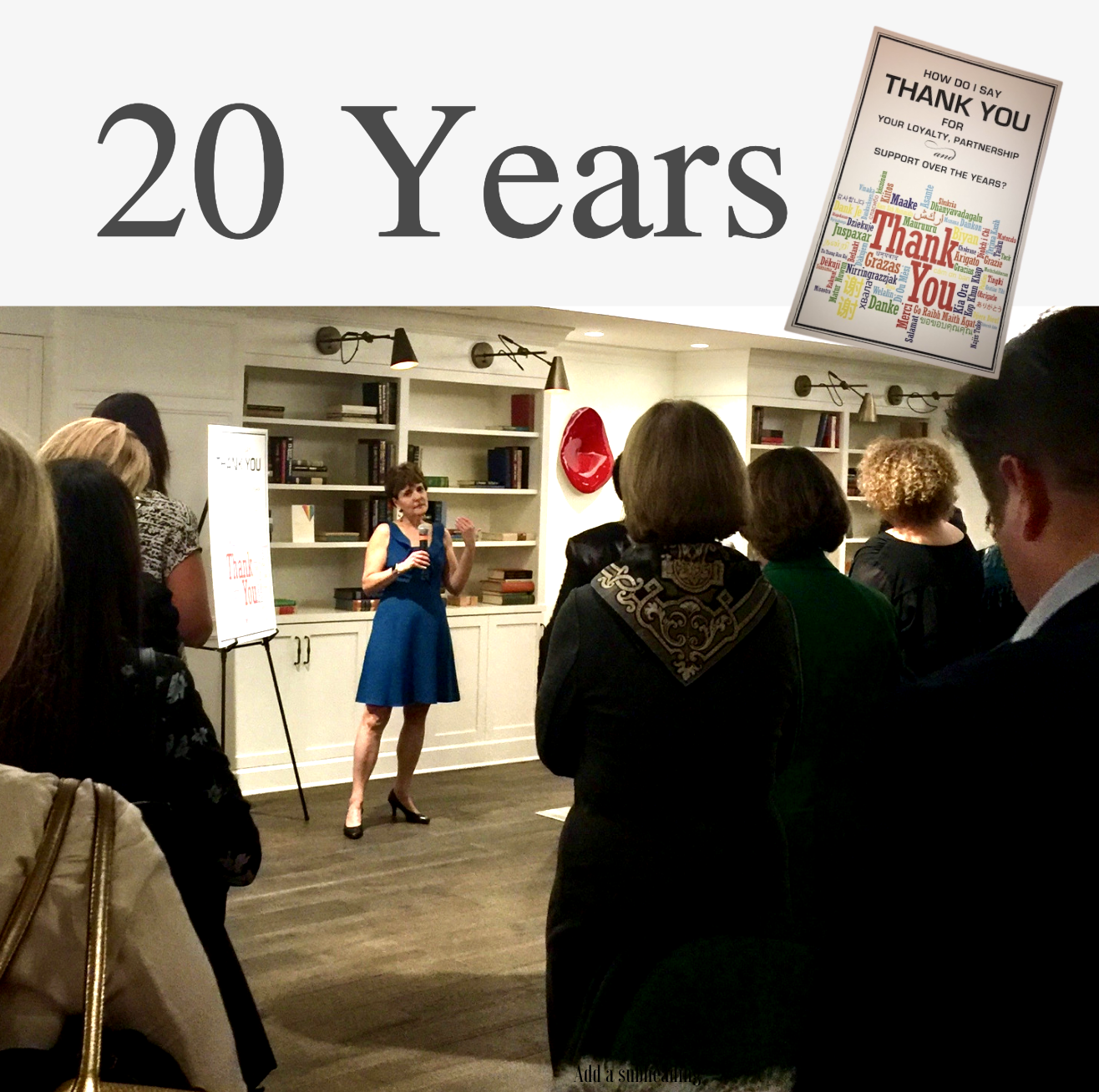
On bright summer morning 20 years ago, my husband turned to me and asked me how I felt. I told him I felt like crap because I had just walked away from a six-figure job at a prominent organization. Without missing a beat, he reminded me that I was now president of Liz Wainger Communications, as that was the name of my firm then. “What the heck does that mean?” I quipped. Two decades later, it means a lot.
When the business launched, I thought it would be a temporary way for me to do work I loved and be home at 3 p.m. for children returning from school. My plan was to consult for a few years and then return to someone else’s company or organization. But a funny thing happened. As soon as I told people I was hanging out a shingle, work poured in.
At the height of the tech boom in the 2000s, my first client became my former boss, a tech mogul turned philanthropist who also became a friend and mentor. Soon after, I was representing an association of venture capitalists, an angel investment firm, start-up tech companies and several nonprofits. Then the tech bust hit and my nonprofit work sustained me, including work for The Community Foundation of Greater Washington and its Survivors Fund response to the September 11th attack on the Pentagon. Work with n a Fortune 500 real estate services firm led to opportunities to advise developers, REITs, a bank, and affordable housing clients, while at the same time becoming a consultant for several large foundations and social services organizations.
It’s been quite a ride with lots of ups and downs—the tech bust, 9/11, the Great Recession, projects won, projects lost, the publishing of my first book Prism of Value, and now a pandemic and global economic crisis. What sustains me during these unprecedented times are important lessons learned along the way:
- Invest in relationships. It is impossible to build a business alone. Take the time to get to know the people who work for you and those for whom you work. Rather than seeing clients or staff as transactions, view them as treasured assets. Learn who they are as people outside of work. Remember birthdays, congratulate successes, and support your team, colleagues, and clients as best you can during failures or hard times. Because collaboration and connection make us all stronger.
- Delegate. This has been one of the hardest lessons for me. Understanding your highest and best value is the first step. Ask yourself what your bosses or clients really hire you for. Once you figure that out, find ways to off-load the tasks that take your time away from what you do best.
- Never stop learning. Stay current on industry and sector trends and, if you work with clients, the trends in their fields and industries. Develop and grow your skills. The world changes. You need to change, too. So learn about new technologies. And take courses. So much learning is available at our fingertips. Those who thrive in this shifting normal are those who learn and adapt.
- Don’t try to be everything to everyone. Seek clarity about what’s most important to you and the people you work with, then focus on what you do best to make their world better. Without prioritizing, you end up doing many things, but not very well.
- Don’t be afraid to let people go. Sometimes things just don’t work out. When you realize a situation isn’t a good fit, don’t prolong the inevitable. Don’t take on projects that aren’t in your wheelhouse only to stay busy—or just to make money. If you’ve signed on with a client who is abusive, non-responsive or difficult, extricate yourself. In 20 years, I “fired” two clients and declined work with others. The few times I did take on projects that I knew weren’t right, I regretted it terribly.
- Say thank you. You can never say it too often or too much. Say thank you for things large and small, from a job well done to an on-time delivery. Express gratitude constantly—for a colleague’s support and extra effort, the boss who gives you a plumb assignment, the referral from a friend, or the new client who trusts you to do a good job.
And in that vain, thank you to my team of consultants, my wonderful clients who teach me new things every day, my mentors who have provided sage advice and counsel, my friends and family who always believed in me even when I didn’t. I am grateful to all of you—and for 20 productive and wonderful years in business.
What are some lessons you’ve learned from your business experiences?

